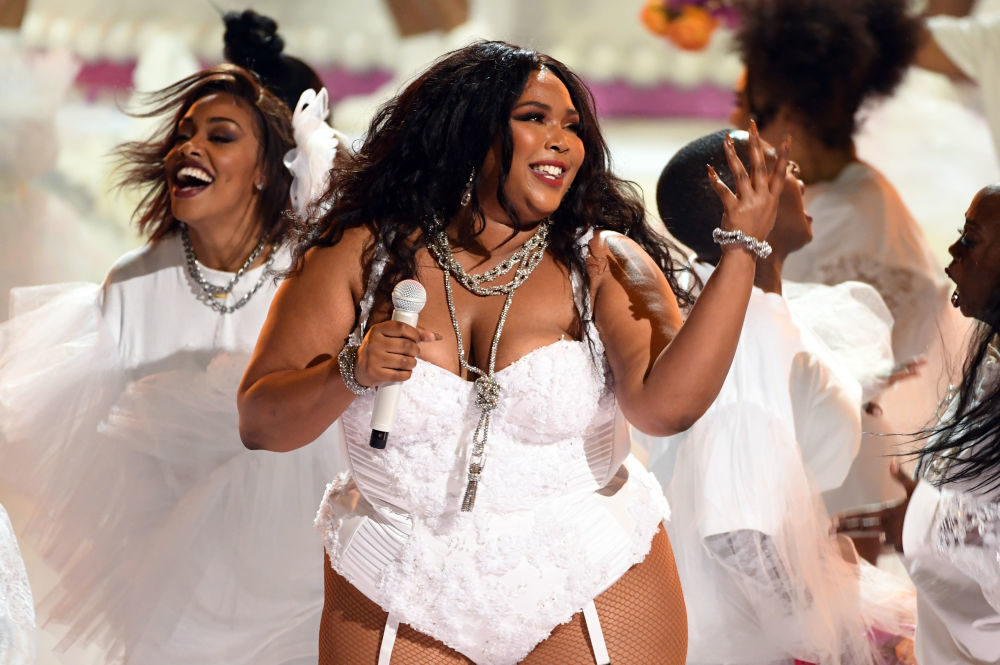The woke have spoken: fat is fab. This is great news for Lizzo, an American singer and rapper whose rise to fame and celebrity has been rapid and shows no signs of slowing down anytime soon. Lizzo, or Melissa Jefferson as she was once known, is unquestionably rotund. In the days of yore, Lizzo’s excessive layers would have been considered optimal, a marker of wealth and status coveted by women and adored by men. In theory, we’ve grown and evolved since those days, and now enjoy unprecedented levels of knowledge and education about medicine, diet, and exercise. This wealth of information should produce an especially healthy populace; instead, Americans continue to stuff ourselves with everything we know we shouldn’t eat: too much red meat, too much fried food, too many carbs. I should be forthright in noting that I do not pretend to exclude myself from this group.
When we do manage to exercise self-control, it’s often times out of concern for what others might think about us if we go up a size or…three. (Who among us hasn’t been there?). This socially-inspired self-control is evidence of a shame culture, yes, and progressives love to bemoan the damage that we do to the psyche by engaging in shaming. In this particular instance, however, we are contemplating a shame culture that yields good results: holding Americans back from the precipice of obesity. Shame cultures are out of vogue these days, and in many respects, for good reason. Not too long ago, we used to shame people who were victims to events or circumstances outside their control. There is obviously little to be gained from this practice.
For most people, however, obesity does not nestle neatly into those parameters. Lizzo and her army of sycophantic fans see fatness as either something neutral and passive — a reality that simply is — or something positive to be glorified, emulated, and certainly never criticized. In interviews, Lizzo consistently delivers a message on the importance of self-love, a characteristic which is inarguably a necessary component for confidence, but can often times also unfortunately and unecessarily inhibit self-growth — and I don’t mean the physical kind. In her lyrics, she is even more explicit: ‘slow songs, they for skinny hoes,’ ‘Look at my ass it’s fitty-fitty fat,’ and ‘Come eat some of this cake, he look like he could gain a little weight / lick the icing off, put the rest in your face,’ are just a few lines of glittering poetry that grace her song, ‘Tempo.’ In ‘Water Me,’ she sings ‘thank god, thank god, I’m gettin’ thicker.’ Maybe someone should tell her obesity makes it more likely that you develop heart disease, strokes, diabetes, arthritis, and cancer.
There’s obviously a kernel of wisdom in the Lizzo approach, and it’s especially apt for the Instagram generation. Little girls and grown women alike should learn to be confident even if they can’t attain Kim Kardashian’s voluptuous curves or Blake Lively’s golden locks. The age of retouching and filtering has been unreasonably demanding to women, and studies show that these misleading photos have led to an uptick in eating disorders. For this reason, Israel became one of the first countries in the world to pass the ‘photoshop law‘ in which magazines must clearly indicate if their photos that have been edited or retouched. In some ways, then, the Lizzo phenomenon is an over-correction. We’ve all been guilty of glorifying unhealthy bodies for a long time now. We shouldn’t continue to do so. It may not be politically correct to say it, but obesity isn’t woke. It’s a death sentence. Pop culture should stop swinging the sword.
Daniella Greenbaum Davis is a Spectator columnist, senior contributor to the Federalist, and host of the Censored in the City podcast.


















